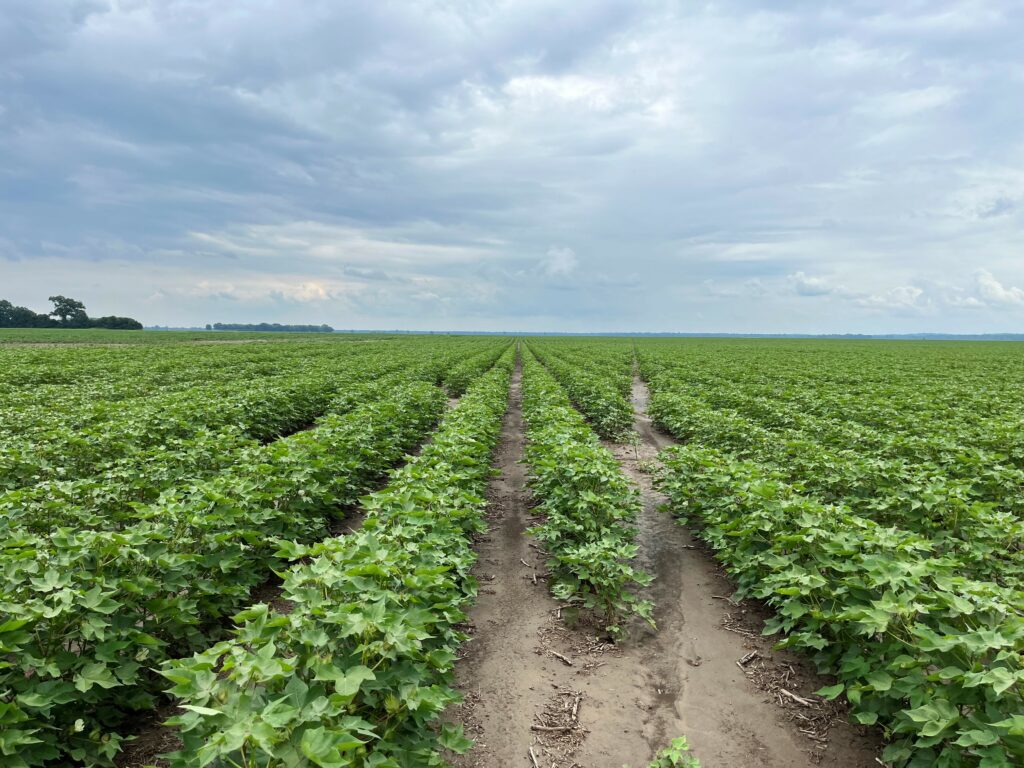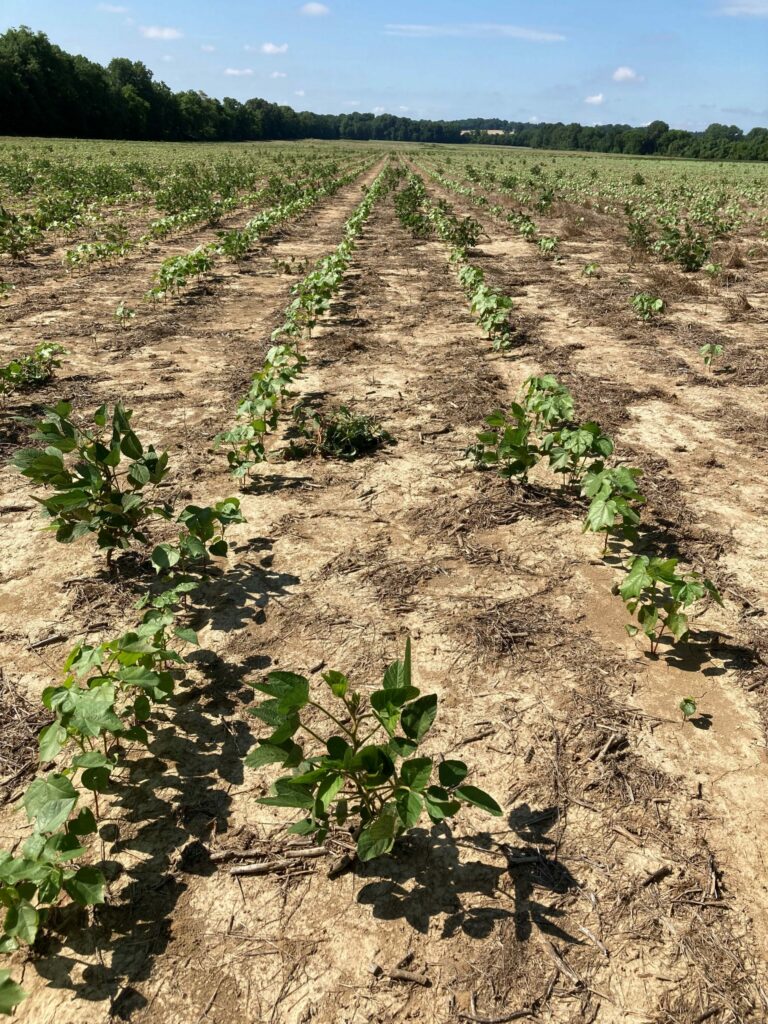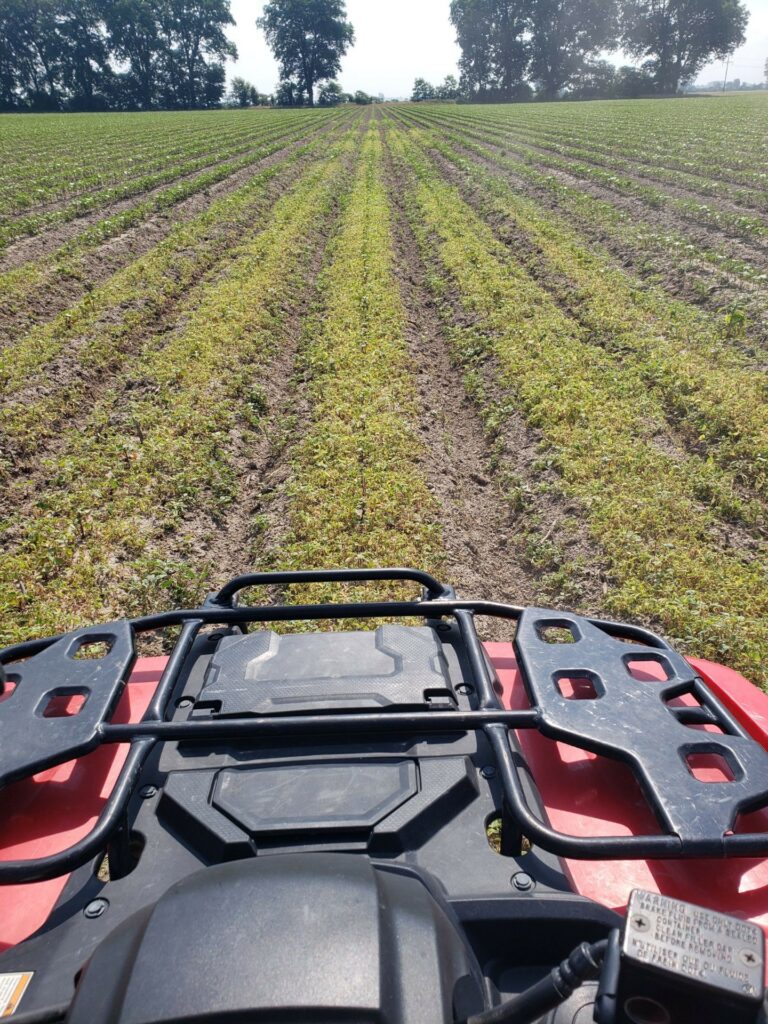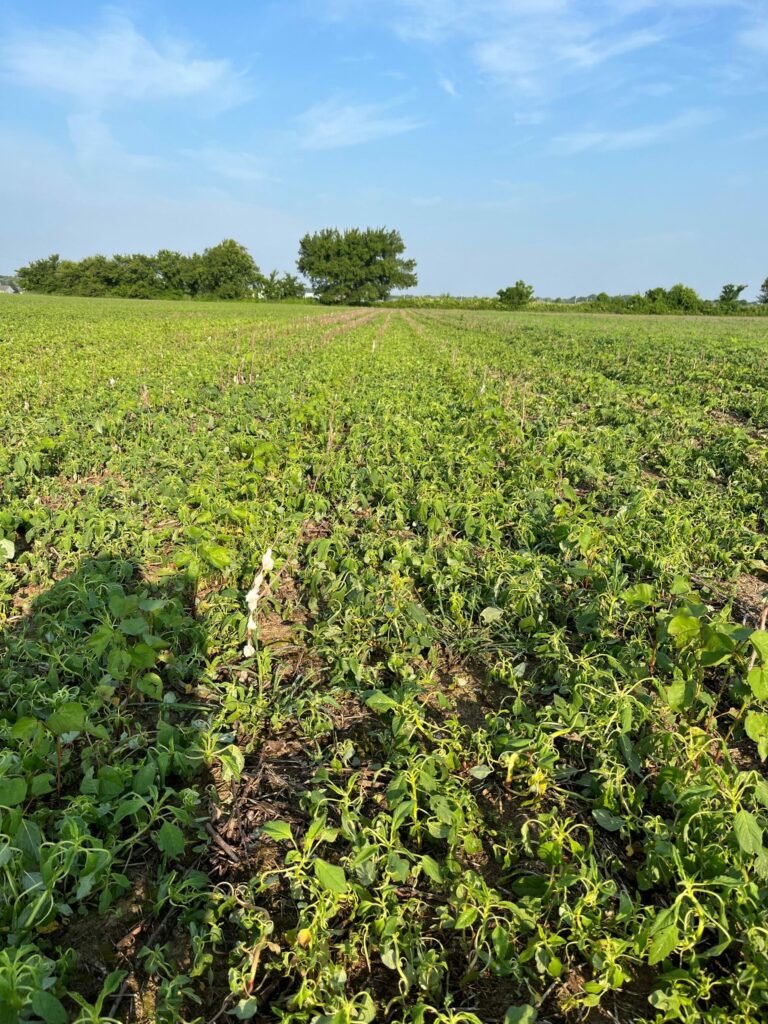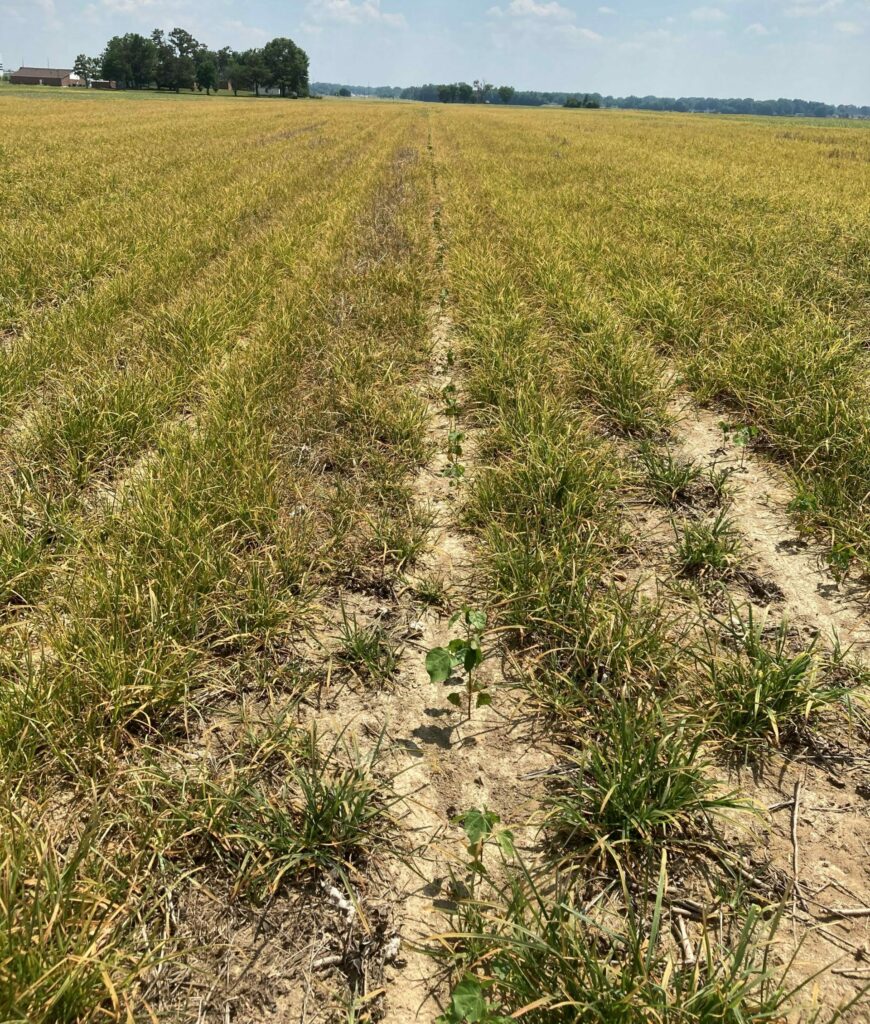How large can corn be before glyphosate could potentially cause injury? The glyphosate label states it can be applied up through the V8 corn growth stage. My experience has been if glyphosate is applied to corn larger than that it can at times cause ears to be barren. This phenomenon is difficult to predict ahead of time as it can vary due to maturity of the corn at application, hybrid and weather.
Crop stage and/or crop height is used to determine the cutoffs for a given herbicide. Often the label states the limits at whichever (crop stage or crop height) comes first. Crop stage can easily be done by counting the number of leaf collars that are fully exposed (ex. 4 collars = 4 leaf) (Picture below).
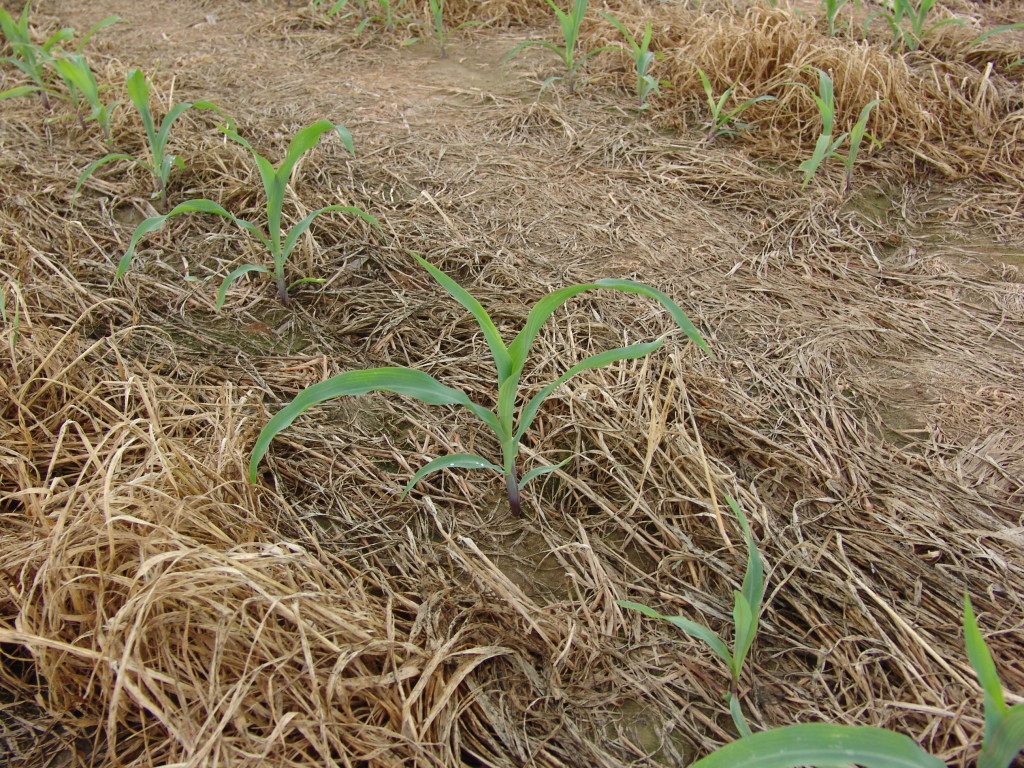
4 leaf (collar) corn – V4 stage
| Postemergence Corn Herbicides |
Crop Height Cutoff |
Crop Stage Cutoff |
| Accent |
20 inches |
6 leaf |
| Atrazine (Bicep, Degree Xtra, Acuron, etc.) |
12 inches |
– |
| Buctril |
– |
8 leaf |
| Callisto* |
30 inches (without atrazine) |
– |
| Capreno* |
20 inches |
7 leaf (without atrazine) |
| Corvus |
2 leaf |
– |
| Dicamba (Banvel, Clarity) |
8 inches (1 pt/A) or
36 inches (1/2 pt/A) |
5 leaf
– |
| Distinct |
24 inches |
– |
| Glyphosate – RR corn only |
30 inches |
8 leaf |
| Halex GT |
30 inches |
8 leaf |
| Hornet |
24 inches |
– |
| Armezon/Impact |
– |
8 leaf |
| Laudis |
– |
8 leaf |
| Liberty (Ignite) – LL corn only |
24 inches |
7 leaf |
| Diflexx |
36 inches |
6 leaf |
| Realm Q |
20 inches |
7 leaf |
| Resource |
– |
10 leaf |
| Resolve Q |
20 inches |
7 leaf |
| Roundup PM – RR corn only |
– |
8 leaf |
| Status |
36 inches |
10 leaf |
| Steadfast Q |
20 inches |
7 leaf |
| 2,4-D |
8 inches |
– |
*Note that if atrazine is added to herbicides such as Callisto or Capreno for example, the cutoff would be reduced to 12 inches.
